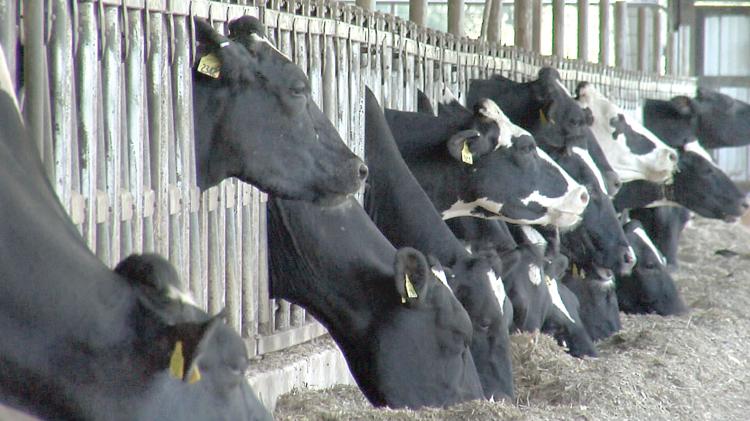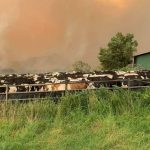
Borden Dairy, announced Monday that it is filing for bankruptcy protection. The announcement followed the bankruptcy of Dean Foods Co., the nation’s largest milk producer, in November.
The issues facing the dairy industry arose at a legislative hearing held at the Pennsylvania Farm Show, the nation’s largest indoor agricultural expo, running all this week in Harrisburg.
Brett Reinford, chairman of the Pennsylvania Dairy Future Commission, created as part of the state’s PA Farm Bill, said that the pair of bankruptcies show that the dairy industry has problems that need to be confronted.
“It’s a clear sign dairy is struggling across the nation and here in Pennsylvania. We really need to figure some things out,” said Reinford, the owner of Reinford Farms, a dairy farm near Mifflintown. He added that he expects the 23-member commission will hand down “unique” and “bold” recommendations about what ought to be done to help the dairy industry in Pennsylvania.
The commission has only met three times, including an initial organization meeting. Its recommendations are due by Aug. 1, he said.
“I would expect to see, a minimum of 15 recommendations but upwards of 30 or 40,” Reinford said.
Reinford said the commission is focusing in four general areas, farm-level, market-level, state-level and consumer-level. Farm-level changes would trying to suggest how farms can reduce production costs. The market-level will be looking at whether the Port of Philadelphia can be better-used to export dairy products. State-level changes could include recommendations about tax policy reforms that might help dairy farmers. And At the consumer-level, the commission is looking at things like product-innovation and trying “to build consumers for life,” Reinford said.
Senate Agriculture Committee Chairman Elder Vogel, R-Beaver, said the Borden bankruptcy seems like “another domino in the domino effect. I don’t know where it’s all going to shake out.”
Agriculture Secretary Russell Redding told lawmakers that the implications of the Dean Food bankruptcy raises more immediate concerns in Pennsylvania because of the amount of business that processor does in this states.
“Fifty percent of fluid milk processed in Pennsylvania is done by Dean Foods,” Redding said. “It’s critical we’re paying attention to that.”
Pennsylvania ranks seventh nationally in total milk production, with nearly 520,000 cows producing more than 10.6 billion pounds of milk annually, according to the Department of Agriculture.
According to the Associated Press, the amount of milk that Americans drink annually has fallen 40% since 1975. In 1996, annual milk consumption was roughly 24 gallons per person, a number that dropped to 17 gallons per person in 2018.
Meanwhile, sales of oat milk increased by a whopping 636% between 2018 and 2019. Cow’s milk sales fell by 2.4% during those same 12 months.
The commission isn’t the only effort included in the Farm Bill to help the dairy industry, Redding said.
The Farm Bill also included a $5 million Dairy Investment Program to help support on-farm innovation to help farmers expand into value-added products like cheese, yogurt and ice cream, he said.























